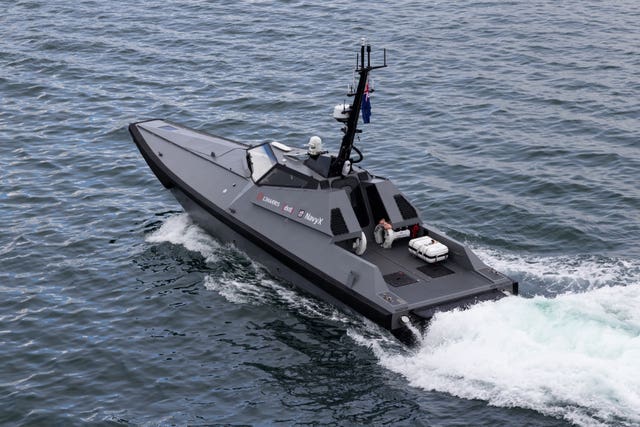
James O'Brien 10am - 1pm
21 July 2021, 11:05

Royal Marines personnel have been carrying out training missions at RAF Spadeadam in Cumbria and Lulworth Cove in Dorset.
Swarms of drones have been operated underwater on the sea and in the air in a first for the UK armed forces.
Royal Marines Commandos have been carrying out the training raids on missile and radar installations both at the Electronic Warfare Tactics facility at RAF Spadeadam in Cumbria and at Lulworth Cove in Dorset.
A navy spokesman said: “In a first for UK Defence, a group of six medium-heavy lift drones were operated in one autonomously controlled swarm from a single ground control station.

“The drones were tasked with tactically re-supplying commandos with everything from ammunition for the assaulting troops, through to blood for combat medics.
“The swarm also demonstrated significant flexibility and switched roles to conduct reconnaissance missions to provide intelligence for commando raids ashore and at sea against a hostile target, when launched from RFA Mounts Bay.
“The autonomous systems also worked together, being tasked independently to find and identify enemy targets, accurately using their range of increasingly powerful sensors and target acquisition algorithms.”
The trials – named Autonomous Advance Force 4.0 – have the aim of creating a combined human and machines force to create “a battlefield advantage”.

The navy spokesman said: “The ultimate aim is to seamlessly embed autonomous systems on the front line to support commando forces on the battlefield.
“These experiments scrutinise tactics and develop knowledge of how the drones can and cannot be used.”
First Sea Lord Admiral Sir Tony Radakin said: “Only by continued experimentation with the latest technology and innovation can we properly prepare our people for the challenges of the future.”
Colonel Chris Haw, the officer in charge of the experiments, said: “We must always remember that this tech is there to enhance commando excellence, not to replace it.”